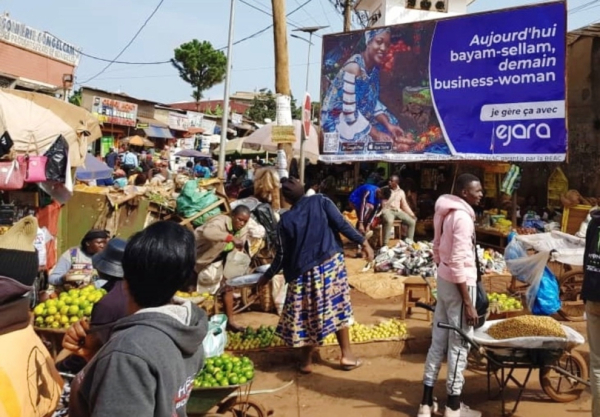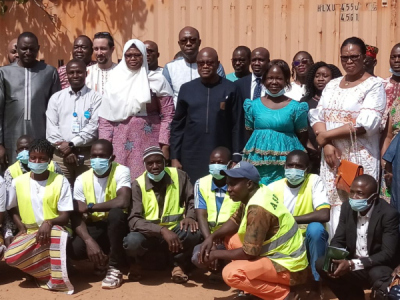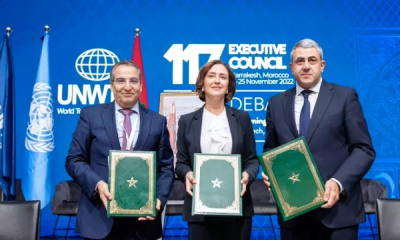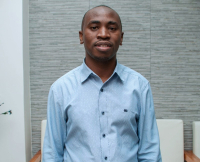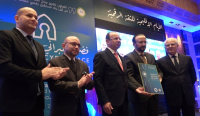The recent rise in e-commerce adoption in Africa has boosted the interest in last-mile delivery solutions, encouraging a growing number of startups to enter the segment.
Messenger is a digital platform developed by a Nigerian eponymous startup. It allows users -individuals or small and medium-sized businesses to deliver goods across Nigeria.
It also provides "premium haulage and cold-chain delivery services for large-scale clients across, in addition to last-mile delivery services for e-commerce and small business owners."
With over 40 bikes and motorcycles, and about 50 employees, the startup serves over 25 Nigerian cities. It boasts all the tools required to fulfill various orders including on-demand shipping services, transportation, cold chain solutions, warehousing, or last-mile delivery. Its ambition is to the start-up has all the tools to fulfill these various orders. Its ambition is "to become a globally recognized logistics and dispatch company reputable for package
delivery and haulage inNigeria.”
Thanks to its system, the start-up has signed partnerships with companies such as Jumia Foods and DHL Express Nigeria. In 2022, co-founder Amanda Etuk was selected as one of the 50 finalists of Africa's Business Heroes competition.
Adoni Conrad Quenum
The startup has developed a fintech app that allows the secured purchase, and transfer of digital assets and also enables users to save in cryptocurrencies. Its goal is to promote financial inclusion and democratize the use of digital financial assets.
Cameroonian crypto fintech Ejara announced, Monday (Nov 28), it has secured US$8 million in Series A funding.
The round, led by London-based venture capital firm Anthemis and Dragonfly Capital, had the likes of Mercy Corps Ventures, Coinshares Ventures and Lateral Capital, Circle Ventures Moonstake and Emurgo Ventures as participants.
The additional funds will be used to further democratize access to investment and savings products in Francophone Africa and the diaspora, using blockchain technology. "Financial inclusion is my utmost concern and my role is to ensure that the financial products that Africans deserve are accessible to them with just a few clicks and the lowest entry barrier,” said Nelly Chatue-Diop, CEO of Ejara.
The fundraising comes exactly one year after the company raised US$2 million in seed funding, bringing its valuation to US$10 million. According to the startup, the financial resources were used to boost the use of cryptocurrency and investment services in Francophone Africa.
Despite the recent collapse of cryptocurrencies, Ejara has seen a 10-fold increase in revenue and a 15% monthly growth in transaction volume since last October. The startup expects to grow its user base to 100,000 by the end of 2022. Currently, it boasts users from Côte d'Ivoire, Burkina Faso, Mali, Guinea, Gabon, and Senegal, as well as French-speaking Africans in the diaspora (Europe, Asia, and the United States).
Samira Njoya
Through the project, the Burkinabe government and international partners aim to leverage digital technologies to strengthen the country's health system.
Last Tuesday, in Kombissiri, Burkinabe Health Minister Dr. Robert Lucien Kargougou launched the pilot phase of Mhealth-Burkina, a mobile e-health app developed to improve community health.
The pilot phase will be carried out in two health districts, the Boromo and Kombissiri districts namely. It is aimed at collecting and transmitting integrated disease management data.
According to Minister Robert Kargougou, improving community health is one of the key priorities to strengthen the health system. "In some areas without health workers, only community-based health workers provide care. So, it is important to digitalize their activities through Mhealth-Burkina, which enables us to collect data on all the activities those community-based health workers perform daily," he said.
In 2019, in partnership with UNICEF and the Global Fund to Fight AIDS, Tuberculosis, and Malaria, the country developed a mobile data digitization application called "mHealth." The application aims to improve patient care and monitoring, as well as on-site drug stock controls.
The application, which works offline, transfers the collected data by SMS to a secure server. This server is accessible to community health center teams, health districts, regional health managers, and national health authorities.
According to the Health Minister, the pilot phase marks the beginning of the digitization of community health workers’ activities. About fifteen modules will be integrated into Mhealth-Burkina to allow the workers to instantly report the needed data.
By 2023, the app will be launched in seven regions covering about 7,500 health workers. Its ultimate goal is to cover every village located more than five kilometers from a health facility.
Samira Njoya
With the emergence of digital reading platforms, it has become easier to sell content online. In Egypt, a tech entrepreneur offers a similar solution to Arab authors.
Kotobna is a digital platform developed by an Egyptian eponymous startup. It helps Arab authors publish their content online and get an audience.
Apart from its web platform, the solution has a mobile application accessible on Android and iOS. Through the app, Internet users can access various books, including short stories- collections, poems comics, biographies, and specialized books.
With Kotobna, the Egyptian startup offers an alternative solution to authors who are unable to get their works published, and above all to new authors.
Its pricing strategy depends on the popularity of the book. According to Egypt Innovate, the books are free for the first 25 readers and then, the startup starts charging “readers a small fee to benefit the writer.”
It is really easy for authors to join the platform. They just need to register as a new user and click on the “Publish your book now” link on the homepage. Then, they will follow the required procedure.
In August 2022, the platform’s founder, Mohammed Gamal, was selected as one of the 50 finalists for Africa's Business Heroes competition, which entitles finalists to a slice of a US$1.5 million prize fund.
Adoni Conrad Quenum
She is a business analyst, consultant, and project management expert with over ten years of experience working with startups in Nigeria, and Africa in general.
Nigerian-born Damilola Teidi-Ayoola (photo) is, since September 2022, Ventures Platform’s head of platform and networks. In that position, she leads a team focused on providing post-investment support.
When she was appointed to that position, she declared she was “excited to join the team and build out different elements of the platform and networks practice.”
“The goal is to build scalable support initiatives and harness the value of our collective networks to provide catalytic value to our founders,” she added.
Ventures Platform is one of Africa's leading seed funders, investing from pre-seed to Series A rounds. It has already invested in more than 60 companies in the healthcare, financial services, insurance, agriculture, education, big data, and internet infrastructure industries. It also invests in talented accelerators and digital infrastructures.
Ms. Damilola worked at Co-Creation Hub (CcHub) as an Incubation Manager from 2018 to 2019 and as Director of Startup Coaching from 2019 to 2022.
With a Bsc in Information Technology from the Eastern Mediterranean University, she started her professional career, in 2011, working as a software developer for application service provider Socketworks. In 2013, she joined the tech company Kinetik Solutions Ltd as a market analyst.
After a three-month internship at the University of Southampton's Program Management Office (iSolutions) in 2014, she joined the CcHub team for the first time where she was a business analyst for pre-incubation companies. From 2015 to 2017, she was the CEO of the Nigerian online ride-sharing platform GoMyWay Africa.
Melchior Koba
The Moroccan government is making continuous efforts to improve the country’s attractiveness and encourage value-added investments in tourism, which is a very promising local sector.
The World Tourism Organization (UNWTO) announced, Tuesday (Nov 29), that it has partnered with the Moroccan government to support 10,000 tourism SMEs in their digital transformation process.
A few days earlier, the two parties had signed an agreement in that regard, on the sidelines of the UNWTO Executive Council session in Marrakech.
"Micro, Small, and Medium Enterprises are the backbone of the global tourism sector…[They] were hit hardest of all by the pandemic.[...] With the right support, they can grow to become true agents of change and help build a more inclusive and sustainable sector. UNWTO is proud to be supporting thousands of small businesses, in Morocco and across the world, to make the shift to digital and so become more innovative and competitive, " said UNWTO Secretary-General Zurab Pololikashvili (photo, right).
The Moroccan tourism sector was indeed hit by the coronavirus pandemic, which caused a significant drop in performance. Nevertheless, according to Tourism Minister Fatim-Zahra Ammor (photo, center), it is recovering now. The figures disclosed show that in June 2022, the sector had improved by 173% year-on-year and 71% compared to the 2019 performances.
With 2.3 million tourists having so far traveled to Morocco since the country lifted its Covid-related travel ban in February, arrivals to the country are now up 52 percent compared to the 2019 arrival figures.
Let’s note that SMEs account for 98% of the country’s tourism industry. They are therefore the backbone of the industry, hence the importance of that agreement, which will allow their digital transformation, through expert and customized support.
Samira Njoya
The Egyptian start-up ecosystem has greatly flourished in recent years. To help its actors achieve better results, the government has committed to supporting it. This pledge has renewed investors’ interest in the ecosystem.
The Egyptian Information Technology Industry Development Agency (ITIDA) announced, Friday (Nov 25), a memorandum of understanding with 500 Global, one of the world's most active venture capital firms. The three-year agreement will allow the company to open an office in Egypt- its first ever in Africa, build the capacity of 200 start-ups and create an investment fund to support Egyptian startups.
"We are thrilled to partner with ITIDA to bring 500 Global’s world-class programs, which have produced eight of our 49 unicorns, and a venture education program tailored for accelerator managers. [...] As long-time investors in the country, we have the utmost confidence in the potential of the Egyptian market and look to be a key enabler of its fast-growing ecosystem," said Courtney Powell (photo, left), COO and Managing Partner of 500 Global.
Indeed, in a very short time, Egypt's startup ecosystem has emerged as one of the four largest in Africa. In 2021, its startups attracted nearly US$500 million in venture capital funding, more than double the amount raised in 2020. They also enabled the development of key sectors such as public transport, alternative, and renewable energy, agribusiness, and e-commerce.
The agreement signed aims to provide the country’s promising startups with the tools they need to succeed, and to train managers of budding accelerators, creating the conditions necessary to foster a regional community of innovators.
According to Amr Talaat (photo, center), Egypt's Minister of Communications and Information Technology, the partnership is part of the ministry's commitment to establishing cooperation with key global players. This commitment aims to create an inclusive and robust network of experts and investors, to accelerate the growth of the local start-up ecosystem, and encourage innovation and entrepreneurship.
Samira Njoya
He is a tech enthusiast and life& business strategist. He has developed digital solutions in almost every sector (education, agriculture, communication, etc) to positively impact his continent and the world at large.
Geophrey Tenganamba (photo) is a Tanzanian entrepreneur. He is also one of the co-founders and global managing director of UjuziNet Africa, a software editor.
The software editor, established in 2020, has published several solutions in a wide range of sectors. The solutions include AdBox, a digital marketing and customer relationship management platform. This platform, founded in 2021, enables SMBs, entrepreneurs, ad agencies, and influencers to communicate, market, sell and support their online audiences. It allows users to schedule posts across social networks and automate responses to comments left by customers.
UjuziNet Africa also published Mazao Hub, an agricultural platform designed to manage farmers, and agricultural activities and control complex agricultural operations. Its digital products also include UjuZinet e-learning – which provides access to quality education online and offline- and EMA ERP, a smart business platform that simplifies and automates business processes. All of the solutions it developed boast users in South Africa, Zimbabwe, Zambia, Congo, Kenya, Uganda, and Tanzania.
“Our focus is Africa, and we all know that Africa is filled with SMEs. SMEs in Africa and beyond are the fastest-growing segments in the cloud-based ERP platform space. They are all looking for solutions which are affordable, customizable, flexible, easy to use, that have close support and fit their business environment,” Geophrey Tenganamba explains.
Concurrently with his mission as the global managing director of UjuziNet Africa, the latter is, since 2019, the director of operations of the software development company AkiliCodes Africa Limited. In 2016, he founded Fursa 101 Africa, a commodity, trading, and logistics platform built for farmers.
The same year, he co-founded Global Corporate Performance Limited, a business consulting and branding firm. He is also the founder of several firms including Perfect Path Innovators (2011), The African Comfort Tours (2012), and Treasure House Real Estate (2013).
Melchior Koba
Cybersecurity is now a global concern. To address cyber threats, countries are coming together to strengthen cooperation for effective actions.
Last Tuesday, the Arab Information and Communication Technologies organization (AICTO) presented its Cybersecurity strategy, on the sidelines of the "Regional Digital Trust Days" (November 29-December 1, 2022).
The strategy aims to help the 17 AICTO member countries, including 10 African countries, respond to cyber challenges and harmonize their legal frameworks in an increasingly digitalized economic environment.
For Adnane Ben Halima, Vice President in charge of Public Relations for Huawei Northern Africa, with every sector undergoing digital transformation and internet usage growing, data privacy and protection can not be assured as they should if systems reliability is not ensured. “Cybersecurity is an important prerequisite and absolute priority,” he said.
The strategy is presented a year after Arab League members and AICTO agreed to map out a common cybersecurity vision and strategy. It is developed in collaboration with experts and aims to promote joint actions and boost strategic inter-regional and global cooperation on the safety and security of ICTs.
The strategy, which will be adopted in the coming months, is part of a set of projects laid out by the AICTO’s 2023-2027 action plan that aims to spur uniform growth and close the existing cybersecurity gap within member countries.
Samira Njoya
For 2023, the Guinean government plans several projects including digitizing some public services and connecting over 300 schools and universities to the internet.
In the coming months, Guinea will record incredible advances in internet connection, Minister Ousmane Gaoual Diallo said on public radio RTG last Monday. According to the government official, the government has already invested over US$200 million to deploy 4,400 kilometers of fiber optics in the country. It is also moving to increase, to three, the number of optical cables it is connected to; to reduce telecommunications and internet costs from over GFr1.5 million to 500,000 (US$58) on average.
In recent years, the Guinean government has stepped up efforts to digitally transform the country. Several projects are underway including the national telecom company (Guinea Telecom), which is expected to launch in the first half of 2023 (according to Minister Ousmane Gaoual Diallo).
In 2023, the country also plans to digitize various administrations and public services, and connect 300 schools and universities to the internet. Last April, to facilitate the implementation of its digital projects, the country created its national digitization agency. The agency will oversee the government’s digital transformation projects and programs.
Samira Njoya
More...
The solution was initially developed to help one of the co-founders' sister overcome dyslexia, a learning disability that can pose huge problems for children.
Sghartoon is a teletherapy platform developed by a Tunisian eponymous start-up. It helps parents and therapists detect learning difficulties, including dyslexia in children, and turn them into "superpowers" through educational games.
Through its mobile app -available for Android and iOS devices, users can register for its services by creating accounts either as parents, therapists, or even a child.
The child can then take an online exam to detect the presence of a learning disability. If a disability is detected, parents and therapists can monitor children’s progress thanks to the games embedded in the platform.
Sghartoon also offers parents and therapists access to a digital game library, a patient management tool with the results of various sessions, and a calendar management tool.
Its Android app has already been downloaded more than a thousand times on PlayStore. In 2020, the startup was among the eight ventures selected for the fifth cohort of the Flat6Labs accelerator, winning a check of US$65,000. The following year, it was one of the eleven African startups that won the Migration Entrepreneurship Prize. The financial supports allowed it to accelerate its growth in the Tunisian market and consider a possible expansion to other countries.
Adoni Conrad Quenum
He is an investment advisor with over 20 years of experience. As one of the initiators and organizers of a prestigious African fintech-focused summit, he has received several awards celebrating his impactful contributions.
Zekarias Amsalu (photo) is an Ethiopian investor, ACCA Chartered Accountant, and an active figure in the African fintech sector. He is also one of the co-founders and co-organizers of the Africa Fintech Summit, “a vibrant community of fintech entrepreneurs, investors, regulators, and everyone in between working together to solve the largest financial issues.”
The summit, launched in 2018, is held twice a year (once in Washington, D.C., and once in a selected African country).
“The Africa Fintech Summit is an event that gathers leaders, investors, regulators, think tanks, business leaders, banks, government agencies, and other architects of the ecosystem to foster collaboration, raise capital, and explore strategies to expand the reach of financial service delivery in Africa. Each April, one AFTS is held on the sidelines of the World Bank's Spring Meetings in Washington, D.C., while another is held in a selected African country,” Zekarias told Digital Africa, in April 2022, while explaining the concept.
The co-founder is also the founder and CEO of IBEX Frontier LLC, an investment consultancy firm focused on emerging markets and preferably in Ethiopia. He was also an investor for the 2019 Cohort of the NextGen Africa program. A few years earlier, in 2002, he founded Future Proof Accountancy, an accountancy firm providing its services to Ethiopian businesses and entrepreneurs.
The experienced investor kickstarted his professional career in 1997 when he joined the Addis-Ababa-based Dashen Bank S.C as the head office accountant. In 1998, he was hired by Shell as Treasurer and East Africa Hub Credit Manager. From 2003 to 2006, he was the financial accountant of Prudential Financial, in London, UK. He then worked for Westminster Electrical as a financial manager between 2006 and 2017. At the same time, Zekarias Amsalu was a management accountant for Godrej Consumer Products Ltd from 2007 to 2008. From 2016 to 2017, he also worked for Asoko Insight where he was the Operations Manager in Ethiopia.
Currently, he is the advisory board member of the VC firm Afrinet Capital. His impactful contributions have earned him several awards. In 2018, he was named one of the top 100 Most Influential Persons of African Descent (MIPAD) Under 40 in the Business/Entrepreneurship category. Forbes also showcased him as an investment connector and, he also won the Outstanding Trade Avocate Award at the Africa Trade and Investment Summit.
Melchior Koba
The move aims at ensuring the smooth operations of the park, which is a natural sanctuary for large mammals, in the digital age.
Yesterday, the Gabonese agency for national parks ANPN and fiber optic operator Axione signed a sponsorship agreement to equip the Lopé National Park with high-speed internet.
The agreement aims to connect the Lopé National Park to fiber optic, allowing the park’s scientific teams to instantly analyze the data collected by the connected objects (plotters, wildlife observation cameras, video protection, etc.).
"We are really pleased and proud to support the actions of the Lopé Nature Reserve, which works daily to protect biodiversity. Thanks to the expertise of Axione Gabon's teams, we are installing a fiber optic network in the park. This fiber optic connectivity will significantly improve the possibilities given to researchers, scientists, or students to transfer and analyze the collected data, which are necessary to observe and preserve the wildlife," said Jacques Beauvois (photo, right) General Manager of Axione Gabon.
The Lopé National Park is on the United Nations Educational, Scientific and Cultural Organization (UNESCO) World Heritage List since 2007. It is one of the richest in Gabon and a priority for the country's government. It is particularly important because it hosts archaeological sites dating back 620,000 to 850,000 years. These are the oldest traces of human life in Central Africa to date. It is therefore important to connect its offices and training center to the national high-speed internet backbone.
Axiome will supervise the fiber optic installation works, supply, connect, and commission equipment, under this agreement, which is the result of three years of cooperation between several public institutions and Axione Group.
Samira Njoya
After his finance courses, he worked for investment companies in France and Africa. He later chose to dynamise the African education sector with an edtech that has already earned investors’ confidence.
Hamza Faiz (photo) is a Moroccan finance expert and entrepreneur. In 2020, he co-founded Smartprof, a marketplace whose mission is to find the right tutor for every student.
The startup based in Casablanca, Morocco, connects school-aged students with qualified teachers for individual or group tutoring. It aims to become the leading one-stop tutoring platform in North and West Africa, which represent a multi-billion-dollar market when combined.
"We launched Smartprof after noticing that the private educational system was failing in Morocco. We were convinced that every student needs some kind of private assistance to overcome the challenges faced in schools. The private tutoring market is very fragmented; finding a tutor is a nightmare. Additionally, there’s no visibility on pricing, so there was a real need for a tech product that creates a great tutoring experience," Hamza Faiz explained in September 2022.
Earlier in November 2022, his startup had raised pre-seed funding of US$110,000 from Plug and Play, UM6P Ventures, and several angel investors. The funds were provided to help Smartprof expand further in Morocco and West Africa and hire additional developers to improve the quality of the platform.
In July 2022, the startup had already raised US$50,000 for its participation in the third cohort of the Mohamed VI Polytechnic University's Startgate and the Plug and Play Morocco startup competition. Hamza Faiz, the co-founder, and CEO who made it possible is a Sciences Po graduate. He is also a graduate of the University of Warwick, UK.
In 2012, he was an engineering assistant at Georgetown University’s ISIS Center. The following year, he spent two months working as the director’s assistant at the Moroccan National Human Development Initiative. From 2013 to 2014, he was the Manager, market searcher, and strategic adviser of Cœur de Couleur, a defunct wholesaler of hygienic and decorative items. After a summer internship at Casablanca Stock Exchange, he was hired by Canal + as a financial controller in 2015.
The following year, he joined Societe Generale Corporate and Investment Banking for an internship as a Mergers and acquisitions and equity capital markets analyst. In 2017, he also interned as an investment associate at AFIG FUNDS in Dakar. Then, in 2018, he joined BNP Paribas as an M&A analyst before being hired by food delivery company Deliveroo as an operations strategy associate in May 2019. In October 2019, the food delivery company appointed him core performance manager, a position he held until October 2021.
Melchior Koba



